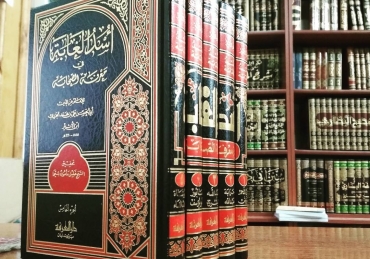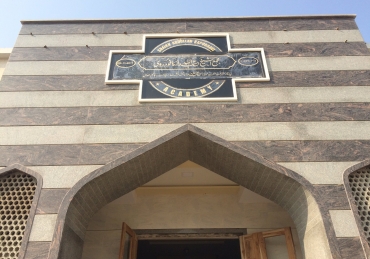Forty pious people who passed away in Sajdah
Question
Please outline some pious people of the past who passed away in Sajdah (prostration).
بسم الله الرحمن الرحیم
Answer
To pass away in Sajdah is a blessing from Allah Almighty. The Prophet ﷺ said, “The closest a slave is to his Lord is when he is in prostration. So, increase supplications [in prostrations]” (Ṣaḥīḥ Muslim, 482). This does not mean that a person who does not pass away in Sajdah is necessarily inferior than the one who passes away in Sajdah. Our beloved Prophet ﷺ did not pass away in the state of Sajdah despite being the best of creation. Nevertheless, passing away in Sajdah is a good sign and an indicator upon a servant’s relationship with Allah Almighty.
The following is a list of some of the luminaries who are reported to have passed away in Sajdah:
- Prophet Ibrāhīm (peace be upon him) (al-Iktifāʾ bimā Taḍammanuhū Magāzī, 1:43; Subul al-Hudā, 1:159).
- Prophet Dāwūd (peace be upon him) (al-Bidāyah wa al-Nihāyah, 2:17).
- The pious servant of Allah who worshipped Allah on the peak of a mountain in an ocean for 500 years. The lengthy narration transmitted in al-Mustadrak (7637), Shuʿab al-Īmān (6:341) Fawāʾid Tammām (1688), Nawādir al-Uṣūl (1:94), Faḍilat al-Shukr (59), Fawāʾid Abī al-Faraj al-Thaqafī (17), al-Muntaẓam (2:169) and al-Ḍuʿafāʾ al-Kabīr (2:144) suggests that he supplicated to Allah to grant him death in Sajdah and also resurrect him in this state. This was accepted. Subsequently, Allah Almighty said to him to enter Paradise due to His mercy. He responded, no, due to my deeds. A conversation follows between him and Allah wherein he accepts that all his deeds including his demise in Sajdah were only possible through the mercy of Allah. Imam Ḥākim (d. 405/1014) has classified this narration as ṣaḥīḥ (sound). Ḥāfiẓ Mundhirī (d. 656/1258) and Ḥāfiẓ Ibn al-Qayyim (d. 751/1350) concur with this (al-Targīb wa al-Tarhīb, 4:399; Shifāʾ al-ʿAlīl, p.114). However, Ḥāfiẓ Dhahabī (d. 748/1348) disagrees because a transmitter Sulaymān ibn Harim is not reliable. ʿAllāmah ʿUqaylī (d. 322/934) has also transmitted this narration and suggests that Sulaymān is unknown and his ḥadīths are not maḥfūẓ, a view endorsed by Ḥāfiẓ Ibn Rajab (d. 795/1393) (al-Ḍuʿafāʾ al-Kabīr, 2:144; Mīzān, 2:227; Jāmīʿ al-ʿUlūm wa al-Ḥikam, 2:79). On the other hand, along with Imam Ḥākim, Ḥāfiẓ Mundhirī and Ḥāfiẓ Ibn al-Qayyim, Imam Bayhaqī (d. 458/1066), Imam Abū al-Faraj al-Thaqafī (d. 562/1167), Ḥāfiẓ Ibn Ḥajar (d. 852/1449) and ʿAllāmah Ibn Ḥajar al-Makkī (d. 974/1567) are inclined to the narration being established in principle (Lisān, 4:180; al-Zawājir, 2:402). The reality is that this ḥadīth is weak, however, it can probably be used in matters of virtue. This is because Imam Ḥākim’s assertion that Layth ibn Saʿd (d. 175/791) – who narrates from Sulaymān – does not transmit from unknown transmitters is contradicted by his own statement in another place in al-Mustadrak (7560) where he clearly mentions that Layth has narrated from Isḥāq ibn Buzurj (n.d.) who is unknown (for his biographical entry, see al-Thiqāt, 4:24; Mizān, 1:184; Lisān, 2:43). In addition to this, Imam Abū Ḥātim al-Rāzī (d. 277/890) has classified some of Imam Layth’s teachers as unknown (see al-Jarḥ wa al-Taʿdīl, 4:195, 331; 7:264; 9:171).
- The companion ʿAbd Allah ibn Saʿd ibn Abī al-Sarḥ (d. 36/656-7, al-Istīʿāb, 3:920, Usd al-Gābah, 3:260; Siyar, 3:33) (may Allah be pleased with him). There is some suggestion that he may have passed away during Sajdah (al-Bidāyah wa al-Nihāyah, 4:297), however, the more prevalent view is that he passed away at the end of Fajr Ṣalāh whilst attempting to make the second salām (al-Istīʿāb, 3:920; Usd al-Gābah, 3:260; Siyar, 3:33; al-Iṣābah, 4:96).
- The companion Abū Thaʿlabah al-Khushanī (d. 75/694-5, may Allah be pleased with him) (Tārīkh Dimashq, 66:104; Tahdhīb al-Kamāl, 33:174; Siyar, 2:567; al-Iṣābah, 7:50).
- Imam Zurārah ibn Awfā al-Baṣrī (d. 93/711-2), the judge of Basra whose narrations are found in all six books. He passed away whilst in Sajdah (al-Jarh wa al-Taʿdīl, 3:603; Tahdhīb al-Kamāl, 9:340). Some alternative narrations suggest that he passed away in Fajr Ṣalāh after reciting the verse (8:74) and falling down (Tahdhīb al-Kamāl, 9:340, Siyar, 4:515; Tahdhīb al-Tahdhīb, 3:322). Perhaps, he fell down into Sajdah and passed away in this state.
- ʿAbd al-Raḥmān ibn Abān ibn ʿUthmān ibn ʿAffān (d. after 100/718). He passed away during Ṣalāh after he fell down in Sajdah (Tahdhīb al-Tahdhīb, 6:130). Other reports suggest he passed away whilst sleeping. He has one ḥadīth in the four Sunan (Tahdhīb al-Kamāl, 16:492).
- The famous mufassir Imam Mujāhid ibn Jabr (d. 102-3/720-2) who passed away in the blessed city of Makkah (al-Ṭabaqāt al-Kubrā, 6:20; al-Thiqāt, 5:419; Tārīkh Dimashq, 57:40; Tahdhīb al-Kamāl, 27:234; Siyar, 4:449).
- The famous tābiʿī and ḥadīth transmitter Imam Abū Bish Jaʿfar ibn Iyās al-Wāsiṭī (d. 125/742-3), whose narrations are transmitted in all six books. He passed away behind the Maqām Ibrāhīm in the blessed city of Makkah (Tahdhīb al-Kamāl, 5:5; Siyar, 5:565).
- Musā ibn Muslim al-Ḥizāmī al-Kūfī known as Musā al-Ṣagīr (n.d.), an unobjectionable transmitter of ḥadīth. It is reported that he passed away behind the Maqām Ibrāhīm in the blessed city of Makkah whilst in Sajdah (al-Jarḥ wa al-Taʿdīl, 8:158; Tahdhīb al-Kamāl, 29:152; Taqrīb, p.554). His date of death is not known; however, his teachers include Imam Ibrahīm Nakhaʿī (d. 96/714-5).
- The emir of Iraq Ibn Hubayrah, whose full name is Yazīd ibn ʿUmar ibn Hubayrah al-Fazārī (d. 132/750). He was killed in the state of Sajdah and his son Khālid has one narration in Sunan Ibn Mājah (Tahdhīb al-Kamāl, 8:199; Tārīkh al-Ṭabarī, 7:456; Tārīkh Dimashq, 65:334; Tahdhīb al-Tahdhīb, 3:128; Siyar, 6:207; al-Bidāyah wa al-Nihāyah, 10:55).
- Abu Ḥafṣ ʿUmar ibn ʿĀmir al-Sulamī al-Baṣrī (d. 135/752-3), whose narrations have been transmitted in Ṣaḥīḥ Muslim and Sunan al-Nasāʾī (Tahdhīb al-Kamāl, 21:403). He has been described as a truthful ḥadīth transmitter with some errors (Taqrīb, p.414).
- Imam ʿAlī ibn al-Ḥasan ibn al-Ḥasan ibn al-Ḥasan ibn ʿAlī ibn Abī Ṭālib (d. 145/762-3), who passed away in prison in Sajdah (Maqātil al-Ṭālibiyyīn, p.176; al-Shajarah al-Mubārakah fī Ansāb al-Ṭālibiyyah, p.35; also see Tārīkh al-Islām, 3:932; al-Tuḥfat al-Laṭīfah, 2:275).
- Imam Abū Ḥanīfah (d. 150/767) passed away in prison (Tārīkh Baghdad, 13:329) in the state of Sajdah after being force fed poison. His Janāzah Ṣalāh was performed six times due to the number of participants (Akhbār Abī Ḥanīfah wa Aṣḥābih, p.93; Mirʾāt al-Zamān, 12:224; Magānī al-Akhyār, 3:141; ʿUqūd al-Jumān, p.358; al-Khayrāt al-Ḥisān, p.145; Radd al-Muḥtār, 1:66).
- The famous ḥadīth transmitter Imam Misʿar ibn Kidām al-Kūfī (d. 153/770 or 155/772) who is reported to have passed away in Sajdah in Masjid Abī Ḥanīfah (Tārīkh Baghdad, 13:354). This is not generally mentioned in his biographical entries. He was very pious and would cry a lot. He is reported to recite half the Qurʾān daily before sleeping. His narrations are transmitted in all six ḥadīth collections (al-Ṭabaqāt al-Kubrā, 6:345; al-Muntaẓam, 8:159; Tahdhīb al-Kamāl, 27:461; Siyar, 7:163).
- The jurist of the blessed city of Madīnah, ʿAbd al-ʿAzīz ibn Abī Ḥāzim (d. 184/800-1) whose narrations are transmitted in all six books. He passed away on Friday in al-Masjid al-Nabawī in the blessed city of Madīnah (Rijāl Ṣaḥīḥ al-Bukhārī, 1:472; Tahdhīb al-Kamāl, 18:124; Siyar, 8:363; Tahdhīb al-Tahdhīb, 6:333).
- The Abbasid caliph Al-Mustaʿīn Billāh (d. 252/866), who was killed in Sajdah in the second unit of Ṣalāh. He had asked his killers to allow him to perform two Rakʿah Ṣalāh (Tārīkh al-Ṭabarī, 9:364; al-Bidāyah wa al-Nihāyah, 11:11).
- The saint Abū Jaʿfar al-Kūfī al-Sūsī whose full name is Muḥammad ibn ʿAmr ibn Yūnus ibn ʿImrān ibn Dīnār (d. 259/872). His teachers include Imam Wakīʿ (d. 197/812) whilst his students include Imam Ṭaḥāwī (d. 321/933) who transmits several ḥadīths from him in his books. He passed away during Maghrib Ṣalāh on his return journey from Hajj to Egypt. He was 100 years old (Tārīkh Dimashq, 55:34; Mirʾāt al-Zamān, 15:414; al-Wāfī bi al-Wafayāt, 4:202; Lisān, 7:418; also see al-Ḍuʿafāʾ al-Kabīr, 4:111; al-Thiqāt, 9:136; ʿIlal al-Daraquṭnī, 1:268; Mīzān, 3:675).
- The famous ḥanafī jurist, Muḥammad ibn Shujāʿ al-Thaljī al-Baghdādī (d. 266/880) who was extremely pious and closely attached to the Qurʾān, notwithstanding some of his erroneous positions in matters of creed and his weak credentials in ḥadīth transmission. He passed away in Sajdah during ʿAṣr Ṣalāh (Tārīkh Baghdad, 2:424; Siyar, 12:379; Tārīkh al-Islām, 6:405; al-Kāmil, 7:550; al-Muntaẓam, 12:209; Tahdḥīb al-Kamāl, 25:362; al-Jawāhir al-Muḍiyyah, 2:60).
- Yaʿqūb ibn Ibrāhīm ibn Aḥmad ibn ʿIsā al-Bakhtarī known as Abu Bakr al-Bazzāz (d. 322/934), a thiqah (trustworthy) ḥadīth transmitter whose students include Imam Dāraquṭnī (d. 385/995) (Sunan al-Dāraquṭnī, 51, 132, 145, 162, 172, 299 and more). He passed away on Friday night in the state of Sajdah (Tārīkh Baghdad, 14:295; al-Muntaẓam, 13:346).
- The famous ḥanafī jurist and ḥadīth expert Imam Ḥākim Shahīd (d. 334/945) whose name is Muḥammad and kunyah is Abū al-Faḍl. He is the author of the famous ḥanafī manual al-Kāfī which is a summary of al-Aṣl by Imam Muḥammad ibn al-Ḥasan al-Shaybānī (d. 189/805) (There is also a view that it is also a summary of al-Jāmiʿ al-Kabīr and al-Jāmīʿ al-Ṣagīr, whilst another view is that it is a summary of all the five books of ẓāhir al-riwāyah). Al-Kāfī is not published, however, its 30-volume commentary al-Mabsūṭ by ʿAllāmah Sarakhsī (d. ca. 490/1097) is published and widely available. What was unique about Imam Ḥākim Shahīd was that he was also a ḥadīth expert who had memorised 60,000 ḥadīths. His students include Imam Abū ʿAbd Allah al-Ḥākim (d. 405/1014) who describes his teacher as the most learned ḥadīth scholar from the ḥanafīs he had met. His routine was to fast every Monday and Thursday and he would never abandon the night prayer and writing books. He would supplicate to Allah during and after Ṣalāh to grant him martyrdom. His supplication was accepted and he was killed in Sajdah (al-Ansāb, 8:187; al-Muntaẓam, 14:49; Tārīkh al-Islām, 7:685; al-Bidāyah wa al-Nihāyah, 11:215; al-Jawāhir al-Muḍiyyah, 2:112).
- (a) The saint ʿAlī ibn Muḥammad ibn Yaḥyā al-Ṭūsī (n.d.), a resident of Nishapur, passed away in Sajdah (Tārīkh Dimashq, 31:74). (b) His son is Abū al-Naṣr ʿAbd Allah al-Ṭūsī (d. 378/988), also a Sufi saint who authored the famous taṣawwuf book, al-Lumaʿ which is published and widely available (Tārīkh al-Islām, 8:452). One source suggests that his son also passed away in Sajdah (al-Nujūm al-Zāhirah, 4:153).
- Abū Bakr ʿAbd al-Wāḥid ibn Aḥmad al-Bāṭirqānī (d. 421/1030), who had expertise in ḥadīth and the various recitation modes of the Qurʾān. He was from Bāṭirqān, a village in the Isfahan region. His teachers include Imam Ṭabarānī (d. 360/971) (Tārīkh al-Islām, 9:365). He was killed whilst in Sajdah during the turmoil of Khorasan which saw the death of many scholars (al-Ansāb, 2:39; Muʿjam al-Buldān, 1:324).
- The Mālikī judge based in Cordoba, ʿAllāmah Muḥammad ibn Aḥmad ibn Khalf al-Tujībī, known as Ibn al-Ḥāj (d. 529/1134), who was an expert in the ḥadīth sciences as well as legal verdicts. He was patient, forbearing and humble. His students include ʿAllāmah Ibn Bashkuwāl (d. 578/1183). He was killed in the main mosque of Cordoba whilst performing Jumuʿah Ṣalāh at the age of 71 (al-Ṣilah, p.550; Siyar, 19:614; al-Aʿlām, 5:317). It should be noted that this is not ʿAllāmah Ibn al-Ḥāj al-Mālikī (d. 737/1336), the famous author of al-Madkhal.
- The Ḥanbalī scholar, minister and ḥadīth commentator, Imam Ibn Hubayrah (d. 560/1165), whose book al-Ifṣāḥ is widely available. He was extremely intelligent and scholars from all schools of thought would participate in his gatherings. When I gave a copy of this book to our teacher Muḥaddith al-ʿAṣr Shaykh Muḥammad Yūnus Jownpūrī (d. 1438/2017) in April 2015, Shaykh said, “The author of this commentary is the great Ḥanbalī scholar ʿAwn al-Dīn Ibn Hubayrah al-Wazīr. He was extremely intelligent and some of his interpretations are full of insight and wisdom. For example, he has explained that Almighty Allah forgives the one who reads Subḥanallāh because a servant expresses that Almighty Allah is pure and free from all faults and weaknesses. In return, Allah forgives the faults and weaknesses of the servant.” He served as minister for sixteen years and two months and was just, humble and pious. Zakat never became compulsory on him. He adopted the Ḥanafī view in relation to intention for fasting. He passed away in Baghdad during Fajr Ṣalāh. It is reported that he was poisoned by a doctor, who was in turn poisoned after six months. Imam Ibn al-Jawzī (d. 597/1201) gave him ghusl (bath) and describes that he has never witnessed such a Janāzah in Baghdad with all the shops closed, attributing this to his justice and piety (al-Rawḍatyn fī Akhbār al-Dawlatayn, 1:440; Majmaʿ al-Ādāb fī Muʿjam al-Alqāb, 2:277; al-Muntaẓam, 18:166; Siyar, 20:426; al-Bidāyah wa al-Nihāyah, 12:250).
- The famous ḥadīth commentator ʿAllāmah Ibn Qurqūl (d. 569/1174), whose full name is Abū Isḥāq Ibrāhīm ibn Yūsuf ibn Ibrāhīm. He is the author of Maṭāliʿ al-Anwār which is similar to Mashāriq al-Anwār of Qāḍī ʿIyāḍ (d. 544/1149). Our teacher Shaykh Muḥammad Yūnus Jownpūrī (d. 1438/2017) cites both books frequently in Nibrās al-Sārī. He passed away in the Moroccan city of Fes on a Friday at the beginning of ʿAṣr Ṣalāh time. As death approached him, he started to repeat Sūrah al-Ikhlāṣ and read the Shahādah thrice and then fell into Sajdah and passed away (Wafayāt al-Aʿyān, 1:62; Mirʾāt al-Jinān, 4:129; also see Siyar, 20:520).
- The ḥanafī scholar Shaykh Muḥammad ibn Yūsuf ibn al-Khaḍir ibn ʿAbd Allah al-Ḥalabī (d. 614/1217) who passed away in Ramaḍān either in Sajdah or after completing Tarāwīḥ Ṣalāh (al-Jawāhir al-Muḍiyyah, 2:147).
- The Shāfiʿī scholar Abū Muḥammad al-Baʿlabakkī, whose full name is ʿAbd al-Raḥīm ibn Naṣr ibn Yūsuf (d. 656/1258). He was the judge of Baʿlabak. His teachers include Ḥāfiẓ Ibn al-Ṣalāḥ (d. 643/1245). He was a very pious person, he would fast regularly. He passed away in the second Sajdah of the third unit of congregational Dhuhr Ṣalāh (Ṭabaqāt al-Ṣhāfiʿiyyah al-Kubrā, 8:194; al-Wāfī bi al-Wafayāt, 18:241).
- Musā ibn ʿAlī ibn Mūsā ibn Yūsuf ibn Muḥammad al-Zarzārī (d. 730/1330) passed away in Sajdah during Ṣalāh. He was an expert in tafsīr and Qurʾānic recitation and was also a khaṭīb (Aʿyān al-ʿAṣr, 5:479; al-Durar al-Kāminah, 6:143).
- The Shafiʿī ḥadīth expert and jurist Ḥāfiẓ Shihāb al-Dīn ibn Bakkār al-Nāblūsī al-Ashʿarī (d. 758/1357) who never married. It was his wish to pass away in Sajdah. People entered his house in Damascus after he was missing for three days and found him in the state of Sajdah (al-Durar al-Kāminah, 1:376; al-Muʿjam al-Mukhtaṣ, p.42; Ṭabaqāt al-Shāfiʿiyyah al-Kubrā, 9:31).
- The Mālikī scholar ʿAbd al-Raḥmān ibn ʿAbd al-ʿAzīz ibn Muḥammad al-Hāshmī al-Nuwayrī al-Makkī (d. 845/1442). He passed away in al-Masjid al-Ḥarām and is buried in the Maʿlāt graveyard (al-Ḍawʾ al-Lāmiʿ, 4:84).
- The Egyptian Shāfiʿī jurist Muḥammad ibn Aḥmad al-Badr ibn Muḥammad ibn Muḥammad ibn Abī Bakr (d. 867/1463), known as Ibn al-Khallāl. He passed away in the month of Ramaḍān in the Sajdah of ʿAṣr Ṣalāh. His students include Ḥāfiẓ Sakhāwī (d. 902/1497) who describes him as humble and simple (al-Ḍawʾ al-Lāmiʿ, 7:83).
- The ruler of the Indian state of Gujarat, Sultan Muẓaffar Shāh Aḥmad Shāh ibn Maḥmūd Shāh (d. 932/1526). He was just and pious and loved the scholars. His writing was beautiful, he wrote several copies of the muṣḥaf with his own hands and sent a copy to the blessed city of Madīnah (al-Nūr al-Sāfir, p.174; Shadharāt al-Dhahab, 10:255). He is buried in the shrine of Shaykh Ahmed Khattu at Sarkhej Roza in Ahmedabad, India.
- The Yemeni scholar and saint Shaykh Abū Muḥammad ʿAbd Allah ibn Shaykh al-ʿAydarūs (d. 1019/1611) whose knowledge, piety and miracles were well known. He planted many trees which benefited the poor. He passed away during ʿAṣr Ṣalāh and his Janāzah Ṣalāh was attended by many people (Khulāṣat al-Athar, 3:49).
- The clothes merchant Jamāl al-Dīn al-Mazbūr (d. 1183/1769-70). He passed away suddenly during ʿAṣr Ṣalāh (Tuḥfat al-Muḥibbīn wa al-Aṣḥāb, p.428).
- The leading Ḥanbalī scholar and warrior Shaykh ʿAbd Allah Ṣūfān ibn ʿAwdah al-Qaddūmī al-Nāblūsī al-Atharī (d. 1331/1913). His student ʿAllāmah ʿAbd al-Ḥayy al-Kattānī (d. 1382/1962) describes him as the most learned Ḥanbalī scholar with strong attachment with the teachings of the early predecessors and memorising ḥadīths with precision, combined with devotion to Allah. He was born in Nablus and passed away there in the state of Sajdah. He resided in the blessed city of Madīnah for several years (Fihris al-Fahāris, 2:939).
- The first wife of the second Head of Tablīgh, Mawlānā Yūsuf Kāndhelwī (d. 1384/1965), Sayyidah Zakiyyah (d. 1366/1947) who is the first daughter of Shaykh al-Ḥadīth Mawlānā Zakariyyā Kāndhelwī (d. 1402/1982). She passed away whilst performing Sajdah of Maghrib Ṣalāh via Ishārah. She remained ill during the final three years of her life. Her daily routine included the recitation of 4-5 Juzʾ of the Qurʾān (Āp Betī, 1:211; Sawāniḥ Ḥaḍrat Mawlānā Yūsuf Kāndhelwī, p.295; Ḥaḍrat Shaykh al-Ḥadīth Mawlānā Muḥammad Zakariyyā Kāndhelwī kī Tīn Marḥūmah Ṣāḥabzādiyā, p.17).
- Mawlānā Ikrām al-Ḥasan (d. 1391/1971), the father of the third Head of Tablīgh, Mawlānā Inʿām al-Ḥasan (d. 1416/1995). He passed away in Saharanpur whilst performing the second Sajdah of the first unit of the pre-Dhuhr Nafl Ṣalāh, and he was buried in the Ḥājī Shāh graveyard (Daʿwat wa Tablīgh key Ḥaḍrat Jī Thālith Ḥaḍrat Mawlānā Muḥammad Inʿām al-Ḥasan Kāndhelwī, p.181).
- Shaykh Islām al-Ḥaq (d. 1416/1996), the first Shaykh al-Ḥadīth of Darul Uloom Bury who taught Ṣaḥīḥ al-Bukhārī for fifteen years. He passed away in the blessed city of Madīnah on 27 Ramaḍān in the state of Sajdah at approximately 4.30am. He was extremely pious and humble, similar to his son our beloved Mufti Ikrām al-Ḥaq (b. 1374/1955). His clothes started to emit fragrance after his demise.
- The Egyptian blind scholar Shaykh ʿAbd al-Ḥamid Kishk (d. 1417/1996), who was imprisoned many times and severely tortured. He passed away in Sajdah in the second unit of the pre-Jumuʿah Nafl Ṣalāh. He saw the Prophet ﷺ and ʿUmar ibn al-Khaṭṭāb (d. 23/644) (may Allah be pleased with him) in his dream prior to his demise; he saw that he fell down and passed away, and the Prophet ﷺ gave him the ghusl (bath). It was his supplication to be granted death in the state of Sajdah. He authored 115 books (al-Muʿjam al-Jāmiʿ fī Tarājim al-Muʿāṣirīn, p.149).
After writing thus far, I have now come across a book in Arabic dedicated to this subject which you may refer to for further names. The name of the book is: ‘Munyat al-ʿĀbid fī man Māta min al-Aʿlām wa Huwa Sājid’ authored by Shaykh Ghālib ibn Shabīb. The book has seventy profiles in total. From the aforementioned list, the following seven are not in the book (numbers: 3, 15, 22a, 27, 37, 38, 39). This brings the total to seventy-seven. However, there are four profiles in the book (numbers: 9, 12, 19, 68) where there is no explicit mention of their demise in the state of Sajdah; it simply mentions their demise in Ṣalāh, which is also praiseworthy. There are a further two profiles (numbers: 29 and 65) which simply state they fell down during Ṣalāh without mentioning Sajdah. Nevertheless, when combining both lists, you will have at least seventy-one names. Finally, it is worth noting that of the seventy, there are two females (numbers: 6, 46) and the aforementioned list has one (number 37) which brings the total females to three.
A more detailed research can identify further males and females who passed away in Sajdah. May Allah Almighty grant us martyrdom in the state of Sajdah in Ṣalāh.
Allah knows best
Yusuf Shabbir
13 Rajab 1439 / 30 March 2018
Approved by: Mufti Shabbir Ahmed and Mufti Muhammad Tahir
Addendum
- The Indian scholar and saint Mawlānā ʿAyn al-Quḍāt ibn Muḥammad Wazīr (d. 1343/1925), a student of Mawlānā ʿAbd al-Ḥayy Laknawī (d. 1304/1886). He did not undertake marriage. He fell down into Sajdah and passed away after listening to some couplets from an Iranian visitor (Nuzhat al-Khawāṭir, 8:1316).
- The South African scholar, Mawlānā Ismāʿīl ibn Aḥmad Salejee (d. 1442/2021). He passed away on Wednesday 6 January 2021 (22 Jumādā al-Ūlā 1442) in the first Sajdah of the second Rakʿah of congregational Fajr Ṣalāh at Madrasah Taleemuddeen Masjid, Isipingo Beach, South Africa. He had a deep attachment with the Quran and would sit for long periods reciting it. He actively took part in the effort of Tablīgh including on the day before his demise. He was humble, simple, warm and cheerful. He would exercise silence and value his time. He did not pass away due to Covid-19.
- Mawlānā Muḥammad ibn Mawlānā Ismāʿīl Kāndhelwī (d. 1336/1918), the elder brother of the first Head of Tablīgh, Mawlānā Ilyās Ṣāḥib, passed away on the blessed night of Friday, in the Sajdah of Witr Ṣalāh, on Thursday 25 Rabīʿ al-Thānī 1336 (7 February 1918). Mawlānā was a pious person whose Tahajjud Ṣalāh was not missed throughout the 16 years prior to his demise (Mawlānā Ilyās awr unkī Dīnī Daʿwat, p.53).
- The handsome young Palestinian martyr, Imam of a Masjid in Gaza and Ḥāfiẓ of the Quran, Taysīr Abū Ṭāʿīmah, also known as Abū ʿUbaydah, who was running and was wounded by the Israeli army, so he raised the Shahādah finger and went into Sajdah and his soul departed his body. This was captured on a video and shared widely by the Israelis on 29 December 2023 (15 Jumādā al-Thāniyah 1445) who scored a massive own goal. Ḥāfiẓ Taysīr was a commander of an elite unit in Gaza, who attained the lofty status of martyrdom in the state of Sajdah. His melodious recitation of the Quran and his Nashīd on the al-Ḥūr al-ʿĪn are both worth listening to.
- The Indonesian Imam of Jami Masjid Al-Ula in Indonesia, Imam Andi Syamsul Bahri passed away on Tuesday 19 Jumādā al-Thāniyah 1445 (2 January 2024) during the first Sajdah of the first Rakʿah whilst leading Fajr Ṣalāh. This was captured on the CCTV system. The Ṣalāh was completed by someone in the congregation and assistance was sought thereafter.






